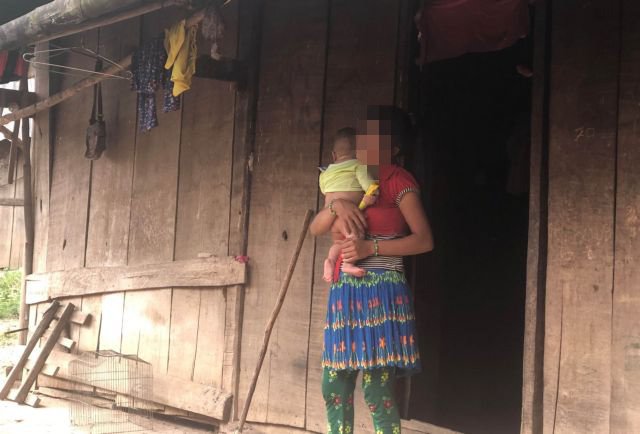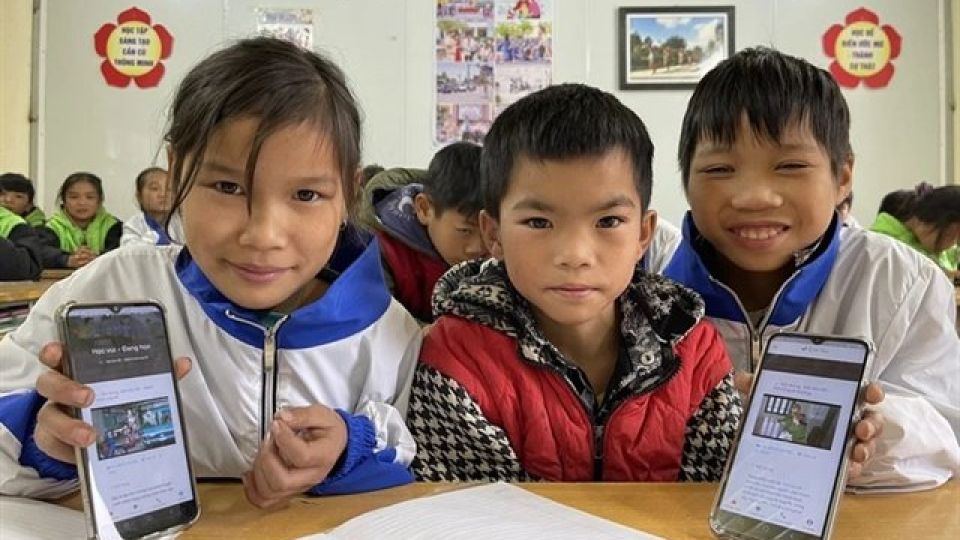May 26, 2023
HANOI – Dr Khuất Thu Hồng, head of the Institute for Social Development Studies (ISDS), speaks to Việt Nam News reporter Khánh Dương on enhancing awareness of ethnic minority children and young people about human trafficking and child marriage through digital technology.
Could you give us an assessment on human trafficking and child marriages in Việt Nam, especially among ethnic minority community?
Human trafficking and child marriages are getting complicated with more sophisticated tricks to lure victims.
Digital technology has been used as an effective tool in our lives but in some ways, it is also a useful tool for human traffickers. That’s why fighting against human trafficking is increasingly challenging.
More than 1,000 human trafficking victims are reported each year. In fact, I believe that there are much more victims because many of them could not return to tell us they have been trafficked. Statistics are a small part of reality.
Human trafficking victims previously were women of childbearing age. Groups of victims have been expanded to men, adolescents, children, even the babies before they are born.
The tricks are getting complicated, targetting curiosity of young people such as offering easy jobs, high income and even tourism packages.
Adolescents who lack life experiences are easily lured. Our country’s economic activities are expanding. Human trafficking tricks have been hidden under various forms to lure potential victims.
In fact, pushing back human trafficking and child marriages is not easy. The problem is that we do have specific communication campaigns targeting each group of victims. We must have the mindset that everyone has the potential to become a human trafficking victim.
Over the past three years, ISDS has run the project of “Enhancing awareness of ethnic minority children and young people on human trafficking and child marriage through digital technology” (EMPoWR), co-funded by the Delegation of the European Union and Plan International in Belgium. Why did the project choose digital platforms as tools to raise awareness of ethnic minority adolescents who live in remote areas and lack access to internet?
If we focus only on traditional communication tools, we can not communicate with young people. It is difficult to invite young people to workshops. Communication using books and knowledge is difficult as well.
Young people love using digital platforms so we need to use digital technology to equip them with preventive skills.
But if we talk about boring topics on digital platforms, young people will get bored easily. The Em Vui (I’m happy) project has tried to grab their attention, encouraging young people to learn and make them curious through photos, stories, quizzes on human trafficking and child marriage.
Not only ISDS, Plan International, but other organisations and individuals also need to be more creative in delivering the messages because tricks and traps are available not only in remote areas but also big cities like Hà Nội and HCM City.
Strengthening communication so that young people are able to gain skills to be more confident and protect themselves are the aims of the project.

A girl in the northern province of Cao Bằng who became a mother at the age of 15. — VNA/VNS Photo Chu Hiệu
What is the biggest obstacle while implementing Em Vui project?
The biggest challenge is how to change customs that have persisted among ethnic minorities for thousands of years.
How do we change the mindset of people and tell them that customs like early marriage, wife robbing are no longer appropriate in modern lives?
How do we tell them that early marriage prevents educational opportunities?
How to do those tasks is not easy. We never say the customs are outdated. We cannot directly criticise those customs because they are cultural identities. Through stories, videos and photos, we hope we can raise awareness for young people and their parents on the negative impacts and consequences of early marriage.
It is proposed that the amended Law on Human Trafficking Prevention and Combat be added to the National Assembly’s agenda next year. How urgent is the law amendment? Do you have any recommendation for the amendment?
I have to emphasise that the Law on Human Trafficking Prevention and Combat holds an extremely important meaning. It was enacted in 2011 and needs amendments in the current context.
The groups of human trafficking victims have been expanded with more sophisticated tricks from traffickers covered in various forms. If you do not make amendments to the law to have stricter regulations, it is difficult to address this issue.
I propose more tougher penalties for deterrence purposes and have mechanisms to provide assistance to victims. We have to identify who are the potential victims and have preventive solutions in place. We should not wait until the cases happen and then arrest violators for punishments but focus on prevention.
The Law on Human Trafficking Prevention and Combat needs to pay attention to communication. We must make investment in communication campaigns. We have used traditional communication tools but honestly they are not really attractive enough.
Communication is key to spread knowledge so that potential victims of human trafficking are able to identify signs of trafficking and equip themselves self-protection skills. — VNS
About Em Vui (I’m happy) projectThe “Enhancing awareness of ethnic minority children and young people on human trafficking and child marriage through digital technology” project has been implemented from June 2020 to June 2023 in 52 communes of four provinces of Quảng Bình, Quảng Trị, Lào Cai and Hà Giang.The Em Vui (I’m happy) project is a product of collaboration between the Institute for Social Development Studies (ISDS), Plan International in Việt Nam with sponsorship of Delegation of the European Union and Plan International in Belgium.The project aims to support 17,200 children and young people from ethnic minorities aged between 10 and 24 to use digital platforms to learn, access to their rights and assistance services relating to child marriage and human trafficking as well as express their expectations to policy makers.The digital platforms include website emvui.vn, a mobile application and six social media channels on Facebook, TikTok, Zalo, YouTube, Instagram and Twitter with the name “Em Vui”.Videos, comics and cartoons about child marriages and human trafficking have been also released as effective tools to raise awareness of young ethnic people.Em Vui project and its digital platforms’ numbers (as of May 20):– In the past six months, nearly 400 people accessed the digital platforms each day, mostly from ethnic minority adolescents in four provinces of Quảng Bình, Quảng Trị, Lào Cai and Hà Giang.- Almost 200 videos and documents related to cyber safety, productive health, child marriage, human trafficking prevention and law knowledge have been posted on Em Vui’s digital platforms.- Nearly 8,000 members on digital platforms.


